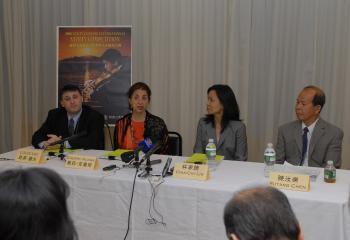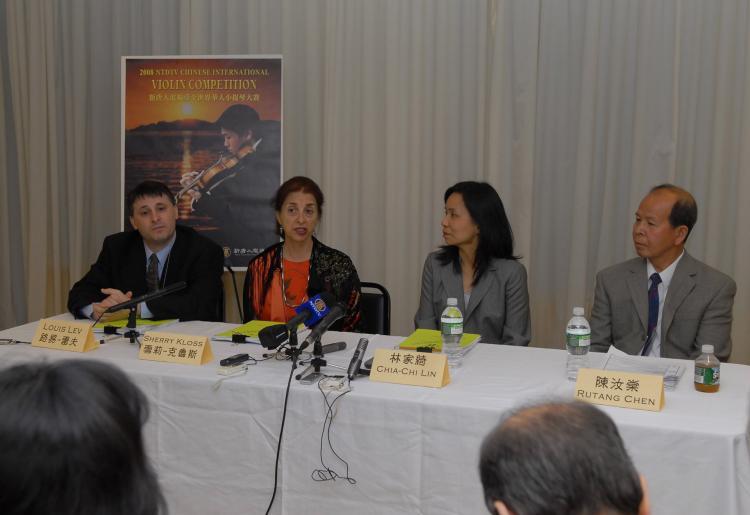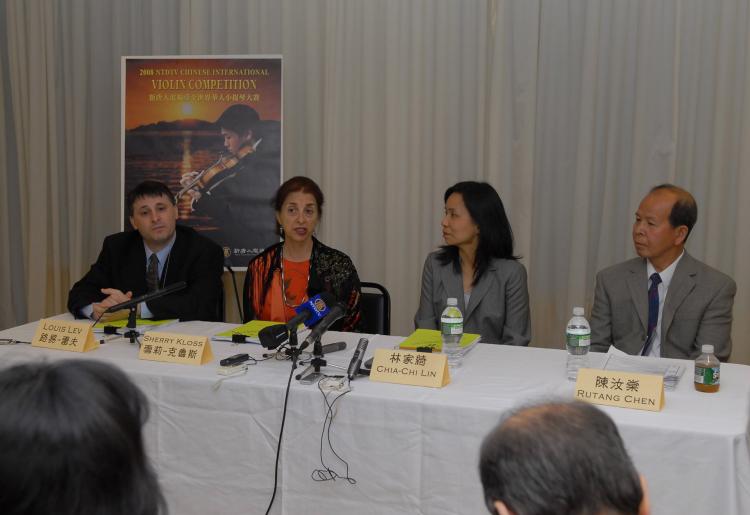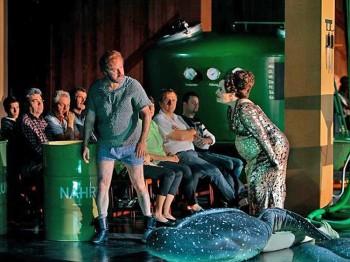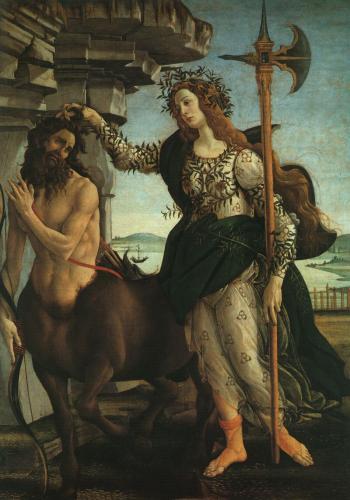NEW YORK—At a press conference after the first round of preliminaries finished on Friday, July 25th, the judges of NTDTV’s first International Chinese Violin Competition explained the concept of the competition.
“The aim of our competition is to promote traditional culture”, explained judge Chian Chi Lin, member of both the Divine Performing Arts Orchestra and Pittsburgh Symphony Orchestra.

